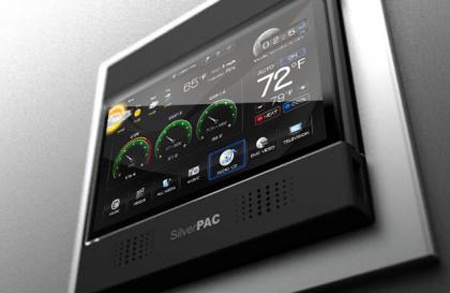Let’s talk smart grid. It’s here already in a lot of places, and coming shortly to many more. It has the potential to drastically change how we consume energy. And yet, there is a great deal of misunderstanding regarding smart grid.
 Only 40% of Americans have heard of smart grid. For readers of this blog who don’t already know, here are the basics: smart grid is a digital electric grid that gathers, distributes and acts on information about the energy consumption of both electricity producers and consumers. Check out this website for more info.
Only 40% of Americans have heard of smart grid. For readers of this blog who don’t already know, here are the basics: smart grid is a digital electric grid that gathers, distributes and acts on information about the energy consumption of both electricity producers and consumers. Check out this website for more info.
Smart meters are the most obvious component of the smart grid. They will replace the traditional electric meters installed on the outside of homes and communicate usage information electronically. This way utilities and consumers can see how much electricity is being used in real time.
 What smart grid does, at its core, is dramatically improve the efficiency of our energy system. It’s not a new source of electricity, just a better way to use and manage electricity. Smart grid will increase reliability and reduce the amount of time it takes to turn your power back on after an outage. Smart grid provides a much-needed overhaul to our electrical system. After all, the grid has not been substantially updated since the 1920’s, when phones were the size of a filing cabinet.
What smart grid does, at its core, is dramatically improve the efficiency of our energy system. It’s not a new source of electricity, just a better way to use and manage electricity. Smart grid will increase reliability and reduce the amount of time it takes to turn your power back on after an outage. Smart grid provides a much-needed overhaul to our electrical system. After all, the grid has not been substantially updated since the 1920’s, when phones were the size of a filing cabinet.
Given these advantages, why is it that only half of the people who have heard of smart grid support its implementation?
Humans fear change. Fundamentally changing our energy system is bound to make a few people nervous. This resistance to change becomes intensified when the change is forced upon us. This is why utilities that have mandated that consumers install smart meters have faced such harsh backlash. Opponents of smart grid have leveraged this fear of change by dramatizing health concerns that have been widely dispelled by scientists and other experts.
Also, smart grid is a complicated technology whose components and benefits are often abstract or indirect. The individual meters are the only components with which consumers will directly interact. When I see an iPhone, I know how it benefits me: I can call/email/text friends with one finger, and I can turn a boring subway ride into an opportunity for Angry Birds™ domination. The benefits of smart grid are not as obvious.
Smart grid works in a very unsexy way– increasing efficiency is just not that glamorous. It lacks the coolness of renewables, or, as Carl Pope, the executive director of the Sierra Club, puts it, “Efficiency is the steak. Renewables are the sizzle.”
Resistance to change and the indirect nature of smart grid’s benefits have contributed greatly to its lack of enthusiast support. Smart grid remains poorly understood and passively supported. But, for the United States to have any hope of leading the world in the kind of energy revolution it so desperately needs, smart grid must become the new standard.
This enthusiasm gap is at the heart of what both policy makers and marketers must overcome in order to facilitate a widespread adoption of smart grid. Unfortunately, government officials on both sides of the aisle have shown a willingness to denounce smart grid in hopes of winning favor with vocal minorities.
From a marketing standpoint, our job is first and foremost to educate consumers about smart grid. Studies consistently show that the more informed consumers are about smart grid, the more likely they are to support it. We want to provide short and simple messages that help consumers better understand the concepts behind smart grid.
But the role of a marketer must go beyond just providing a basic education. We need to change the conversation about smart grid — or better yet, start a new one. Let’s create a narrative that helps consumers clearly see the connection between smart grid and their own lives.
In a few years, you will be able to control all of the appliances in your home from your smart phone. You will be able to program your washing machine to automatically run when rates dip below a certain level. And when you leave for vacation but forget to adjust your thermostat, you will be able turn off the air conditioning from many miles away.
Beyond gadget wizardry, the smart grid and smart meters will help us better understand our own energy use and allow us to make informed decisions about how and when we use energy, and about changes we can make in order to save money.
This is not science fiction; this is smart grid. Our Smart Energy Team is incredibly excited about it, and we want to share the excitement. We spend so much time worrying about defending smart grid that we forget to talk about how amazing this technology can be. Let’s stop arguing about faux-science and help people imagine the incredible possibilities.
So we want to know: what are you hearing about Smart Grid? What are you excited about? What would it take for you to become a smart grid advocate?

